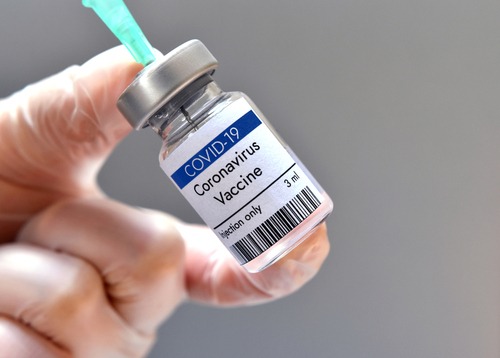
Johnson & Johnson (J&J) released news from the South African Phase 3b Sisonke study of its COVID-19 booster vaccine, which demonstrated 85 percent effectiveness against COVID-19 induced hospitalization, even in a region dominated by the omicron variant.
The results were preliminary, conducted by the South African Medical Research Council (SAMRC). They flowed from a study of healthcare workers in South Africa after omicron surged into the dominant variant there, between mid-November and mid-December 2021. High success rates followed even despite omicron’s tendency to evade neutralizing antibodies – something researchers ponder attributing to the J&J vaccine’s CD8+ T-cell generation.
“This adds to our growing body of evidence which shows that the effectiveness of the Johnson & Johnson COVID-19 vaccine remains strong and stable over time, including against circulating variants such as Omicron and Delta,” Dr. Mathai Mammen, Global Head of Janssen Research & Development, LLC, for J&J, said. “We believe that the protection could be due to the robust T-cell responses induced by the Johnson & Johnson COVID-19 vaccine. Furthermore, these data suggest that Omicron is not affecting the T-cell responses generated by our vaccine.”
The trial focused on healthcare workers given their frontline engagement with the disease and increased risk of infection. Enrollment in Sisonke 2 was conducted across approximately 350 vaccination centers in South Africa. When given a booster six to nine months after a primary single dose of the J&J vaccine, the 85 percent protection increase was seen about 1-2 months post-boost.
“The data showing the effectiveness of the Ad26.COV.2 vaccine booster against Omicron in Sisonke is important, as this vaccine is part of our arsenal to combat COVID-19,” Dr. Nicholas Crisp, Deputy Director General of the South African National Department of Health, said. “This data should reassure healthcare workers who have not taken their booster to get vaccinated as soon as possible.”
Separately, a second analysis of the immune response to various vaccine regimens, conducted by Beth Israel Deaconess Medical Center (BIDMC), show that mixing and matching a J&J COVID-19 vaccine booster with an initial BNT162b2 mRNA vaccine dose generated a 41-fold increase in neutralizing antibody responses within four weeks of boosting and a 5-fold increase in CD8+ T-cells to omicron within two weeks. Boosting with the same BNT162b2 vaccine generated a 17-fold increase in neutralizing antibodies within four weeks following the boost and a 1.4-fold increase in CD8+ T-cells within two weeks.
Essentially, this suggests that heterologous boosting could induce strong cell-mediated immunity, an important step for immune memory and protection against severe lower respiratory tract disease. Whether this is lasting is as much a question for heterologous and homologous boosts, on which studies are ongoing.




